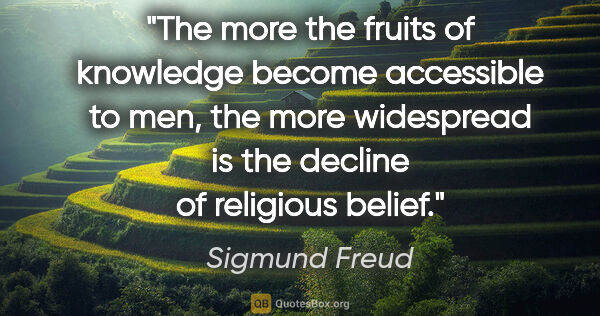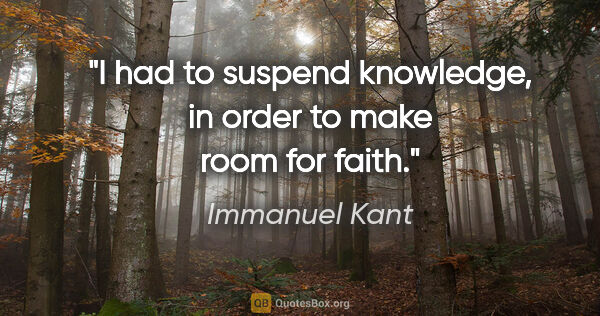Knowledge Quotes (page 48)
His education had been neither scientific nor classical—merely “Modern.” The severities both of abstraction and of high human tradition had passed him by: and he had neither peasant shrewdness nor aristocratic honour to help him. He was a man of straw, a glib examinee in subjects that require no exact knowledge (he had always done well on Essays and General Papers) and the first hint of a real threat to his bodily life knocked him sprawling.
C. S. Lewis
However, for the man who studies to gain insight, books and studies are merely rungs of the ladder on which he climbs to the summit of knowledge. As soon as a rung has raised him up one step, he leaves it behind. On the other hand, the many who study in order to fill their memory do not use the rungs of the ladder for climbing, but take them off and load themselves with them to take away, rejoicing at the increasing weight of the burden. They remain below forever, because they bear what...
Arthur Schopenhauer
My name isn't Offred, I have another name, which nobody uses now because t's forbidden. I tell myself it doesn't matter, your name is like your telephone number, useful only to others; but what I tell myself is wrong, it does matter. I keep the knowledge of this name like something hidden, some treasure I'll come back to dig up, one day. I think of this name as buried. This name has an aura around it, like an amulet, some charm that's survived from an unimaginably distant past. I lie in my...
Margaret Atwood
Three years of changes, moves, uncertainties, upheavals; the war, the revolution; scenes of destruction, scenes of death, shelling, blown-up bridges, fires, ruins—all this turned suddenly into a huge, empty, waste space. The first real event since the long interruption was this vertiginous home-coming by train, in the knowledge that his home was still safe, still existing somewhere, with every smallest stone in it dear to him. This was the point of life, this was experience, this was the...
Boris Pasternak
Whenever someone, on seeing something, realizes that that which he now sees wants to be like some other reality but falls short and cannot be like that other since it is inferior, do we agree that one who thinks this must have prior knowledge of that to which he says it is like, but deficiently so?
Plato

Keith Haring wrote " You see that's why I work like a dog and I worked like a dog all my life. I am not interested in the academic status of what I am doing because my problem is my own transformation. Thats the reason also why, when people say. " Well you thought this a few years ago and now you say something else," my answer is[laughter]" well, do you think that I have worked like that all those years and not be changed?" This transformation of ones self by ones own knowledge is, I think...
Keith Haring
